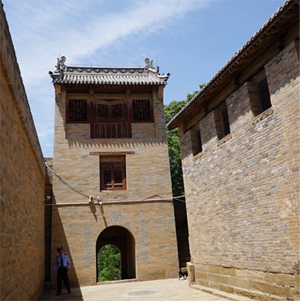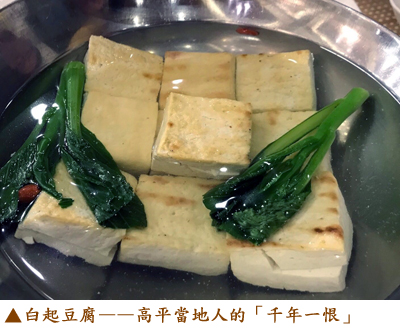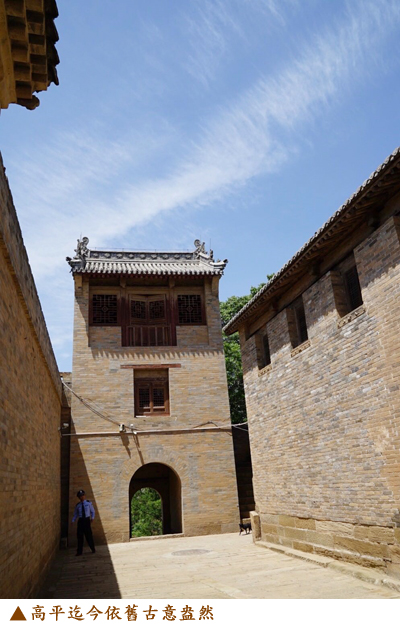02.2019 Office Talk
A big fish in a small pond and a small fish in a big pond
Yuan-Ding Industry (Shanghai) / Liu Zuliang


The luckiest thing in life is that when you meet an officer who appreciates you, you are put in the right position. So that a monarch or a minister (a boss or a partner) is not only a personal luck, but also a national social (company/department) fortune, such as Qi Huan Gong and Guan Zhong, Qin Xiaogong and Wei Yang, Liu Bei and Zhuge Liang, Fu Jian and Wang Meng, Tang Taizong and Wei Zheng, all of which are combined in the contemporary era. A remarkable career has been created. On the contrary, the full-bodied genuine learning is not used by the Taoist school, and it is a personal misfortune and a loss of the times to end up depressed and even be slandered to death.
Han Fei in the Warring States Period was a typical representative with outstanding talent and good literary talent, but unfortunately he stuttered and was not good at expressing himself, so he was not loved by those in power. Unfortunately, when he met Lisi, who was narrow-minded, his broad-minded ability became the reason why Lisi must be eliminated and then quickly, which led to Han Fei's eventual death from hatred. His grievances and grievances made him sigh for all ages.
Xin Qiji in the Southern Song Dynasty is also a regrettable example. At the age of 21, Xin Qiji threw pen to join the army, organized the rebels in his hometown, cooperated with the regular army of the court, and for a long time revolved with the Jin soldiers in the north and south of the Yangtze River. Because most of the ministers of the Southern Song Dynasty advocated reconciliation with the Jin people, they insisted that Xin Qiji, who opposed the Jin Dynasty, should be demoted and his military power lifted. Since then, he had been living idly for a long time. He could only "look northwest at Chang'an and pity countless mountains" or even "change the ten thousand-word policy into the master tree-planting book".
In 1204, Xin Qiji, then the prefecture of Shaoxing and Conciliator of East Zhejiang Road, was 65 years old. At that time, Song Ningzong recruited Xin Qiji to Beijing (Linan, now Hangzhou) and asked him about his views on the Northern Expedition of Jin State. Lu You, a good friend, wrote a poem for him. Two of the sentences are "Xiao He Shiliya Guan Zhongxiao" which means that Xin Qiji is comparable to Guan Zhongxiao and Xiao He who are first-class talents. He put the big materials in small places by the comforting envoy of Dangdong Road in Zhejiang Province, which is the origin of the idiom "big materials are small". Unfortunately, Xin Qiji did not get any more reuse in his life. Linlao wrote, "General's name is broken and he turns back to the river beam for thousands of miles. He is a man of everlasting beauty. His clothes are like snow, and his heroes and sad songs are not thorough. He knows how to hate singing birds. He can't anticipate tears and blood, who is with me, and the drunk moon (Note 2)" sighed the helplessness in his heart.

A person who has great talent and is underused is sad but not miserable; on the contrary, if only a little talent can be used because of fate, it will not only cause his personal sorrow, but also often result in the tragic end of an era and a large group of people! One of the most famous examples is Zhao Kuo. This gentleman is the son of Zhao Luxu, a famous general of Zhao State. He loved reading military books when he was young and talked about the invincibility of military tactics. However, his father saw that his son had a false appearance and said that it was the boy who would defeat Zhao Jun in the future. Sure enough, when the Qin and Zhao armies fought in the long peacetime, Zhao Kuo's general Baiqi's plan led to 400,000 troops of Zhao State being captured and killed in pits. Because of the terrible killing, the local people hated Baiqi thoroughly. Therefore, the people of Gaoping (Changping in the Warring States Period) compared tofu to "white meat" and cooked it in hot water to vent their anger, which was the reason for the traditional delicacy "white tofu". Come on.

When Lu Wenji took office, Tang Jiangshan was already full of internal and external troubles and storms. He was not only blind to them, but also busy with trivial matters, such as performance appraisal for ministers, review of the procurement system in the DPRK, and the process of signing and verifying. And so on. As a result, within a year (933 A.D.), Shi Jingrong combined with the rebellion of the Khitan Army. In the late Tang Dynasty, Emperor Li Congke intended to resist the conscription, but was dissuaded by Lu Wenji on the grounds that the city near the capital was strong and there were three rescuers. The Emperor did not need conscription, but only went to watch the battle nearby. He did not understand that the military generals of the later Tang Dynasty had been centrifuged and morale of the people had already disintegrated. If Li Congke could personally recruit, he might inspire morale and have a deterrent effect on generals, but Li Congke adopted Lu Wenji's opinion (perhaps he had no courage to personally recruit, but just put on a posture. Lu Wenji's suggestion just happened to be given to Li Congke on the steps). He decided that as long as he "watched the battle", Later Tang Juntou was unwilling to be cannon fodder. When the army fled or fell, there was almost no resistance. Later Tang Jiangshan was doomed. Seventy years later (1004 A.D.), Qidan (Liao) invaded the South again. Kou Jun, the then Prime Minister of the Northern Song Dynasty, encouraged the cowardly Song Zhenzong's conscription, thereby strengthening the general's will of war in the Northern Song Dynasty, eventually defeating the vanguard of the Liao State, and establishing the "Alliance of Chaoyuan" to help the Northern Song Dynasty achieve nearly a hundred years of peace. From this we can see that the quality of the prime minister plays a key role in the crucial moment, which determines the fate of the two dynasties.
Another Prime Minister of the later Tang Dynasty, Ma Xusun, was also a "genius of the earth". He had a nickname "three failures". He did not open his mouth to discuss, publish to act, and open the door to Yanshi. This kind of "governance" philosophy, which is more than one thing less, fully demonstrates that Ma Xusun has neither the ability nor the grace of a prime minister. Best of all, when Li fled from Ke to Huaizhou to discuss the time of national salvation, he also rushed from Luoyang to Huaizhou, but did not bring any magic tricks. He only offered 300 pieces of silk to the last emperor. Imagine that the mountains and rivers are no longer safe. What's the use of the emperor's request for 300 silks? Li Congke used Lu Wenji and Ma Xusun as prime ministers to be in charge of military affairs. Was there any reason why the later Tang Dynasty would not die? But the foolish emperor and the incompetent prime minister did not come to a good end. What's worse is that the thousands of people displaced in the war are really "thriving and suffering for the people!" Death, people suffer! "(Note 4) The disasters caused by the use of small timber can be seen.
Enterprises and countries alike, it is often the key to the rise and fall of the main players whether they can use the right person or position. If the use of talents is based on the overall interests of the company and does not consider whether they are suitable or not, it is not only a waste of salary that simply fills the position with the urgent mentality of "picking up the basket is the dish". The impact will be far-reaching. Because a person with ordinary abilities, "lucky" sits in a high position, confined to ability, unable to prove his value by achievements, he has to use power and collusion to protect, so as to destroy the unity of the whole team. Many rebellions in Chinese history are due to this. The most obvious example is Yang Guozhong's forced rebellion against Mount Anlu.
Employment is relativism, and trust is the only consideration for employing people. It is another common phenomenon in enterprises. In fact, trust can be cultivated and earned. After the change of Xuanwumen Gate, the staff advised Li Shimin, who succeeded the prince, to replace the guards who served the East Palace built by the former Prince Li. However, Li Shimin refused to accept them, but instead treated them as his own. Therefore, they gained the recognition and support of everyone, proving that as long as they knew how to be human and employ people, the "circle of trust" could grow larger and larger, so that the world's elites could make full use of themselves; on the contrary, the people around them would become more and more useful. Less.
The author once worked in an information company. The owner hired his elementary school classmates who only had experience in selling mutton stoves as business managers, ignoring how ignorant he was about the information industry, so it is not surprising that the company later suffered from project quality out of control, turnover failure, no salary, and even the whole team of major project managers defected.
Leaders'personality traits and measures affect their ability to recognize, know and even retain talents. Taking history as a prison, honesty and kindness are the essential characteristics of leaders. Honest people will win the respect and trust of their subordinates only if they do not flatter and flatter each other face to face and speak ill of each other behind their backs. A generous person, with a large pattern, will not weigh too little, will not be lenient to self-discipline, strict to others, and will not speak harshly and speak quickly, so as to gather people's hearts and win centripetal force. Whether in the past or in the future, whether in the country or in the enterprise, development and growth depend on talents, so that the big and small talents are suitable, and the wise and mediocre people do their best. This is the main work of leaders, but also the key to the prosperity and decline of the country and enterprises.
Note 1: From Lu You's "Sending Xin Youan Dian to Write Dynasty"
Note 2: From Xin Qiji's "He Groom (Bei Maojia Twelve Brothers)"
Note 3: "Those who break Zhao's army must be included" from "History of Lian Po-lin Xiangru's Biography".
Note 4: From Zhang Yanghao's "Goats on the Hillside. Luoyang Huaigu"#



















